Purdue University – Agriculture and Biological Engineering Building
Flad Architects completed the Agriculture and Biological Engineering Building for Purdue University in West Lafayette, Indiana.
Flad Architects provided laboratory programming and planning for the renovation of the existing Purdue University Agricultural and Biological Engineering (ABE) Building as well as architectural design and interior design in collaboration with local architect MSKTD & Associates and Purdue’s Administrative Operations team.
Encompassing a 125,000-square-foot addition and a 37,000-square-foot renovation to the existing ABE Building, this project provided much needed research space to support growth in both graduate and undergraduate enrollments. In collaboration with MSKTD, Flad’s new design consolidated department research that was previously spread across nine campus buildings into a state-of-the-art engineering facility that supports bio-process and biological engineering, food engineering, machine systems, water and environmental research, teaching, and support spaces. The building is certified LEED Silver.
The three-story portion of the existing ABE Building was renovated to house offices for faculty, staff, and some graduate students, as well as support spaces for students. Due to a shortage of student gathering spaces in this area of campus, a significant emphasis was placed on incorporating amenities that welcome collaboration and social interaction, including a small café. The importance of connection is highlighted throughout the building, from a lobby designed to host industry events and study groups to the use of floor-to-ceiling windows that provide transparency throughout the building and campus views.
The existing one-story portion of the building was demolished and replaced with a new four-story addition with a basement level. A creative design approach employs a mezzanine that facilitates a direct connection from each floor of the existing structure to the new addition.
The addition houses three classrooms large enough to accommodate the ABE department’s growing undergraduate enrollment, scale-up teaching labs to support the full range of laboratory experiences required by instructional programs, maker spaces to support student discovery and creativity, and graduate student offices. Specialty spaces include a high bay lab that accommodates large agricultural machinery, teaching labs for electrical systems, engines, and hydraulics supporting mechanical and electrical engineering, a machine shop, a distillery and brewery, and drone research labs for land and crop surveying.
Design: Flad Architects
Photography: Brad Feinknopf

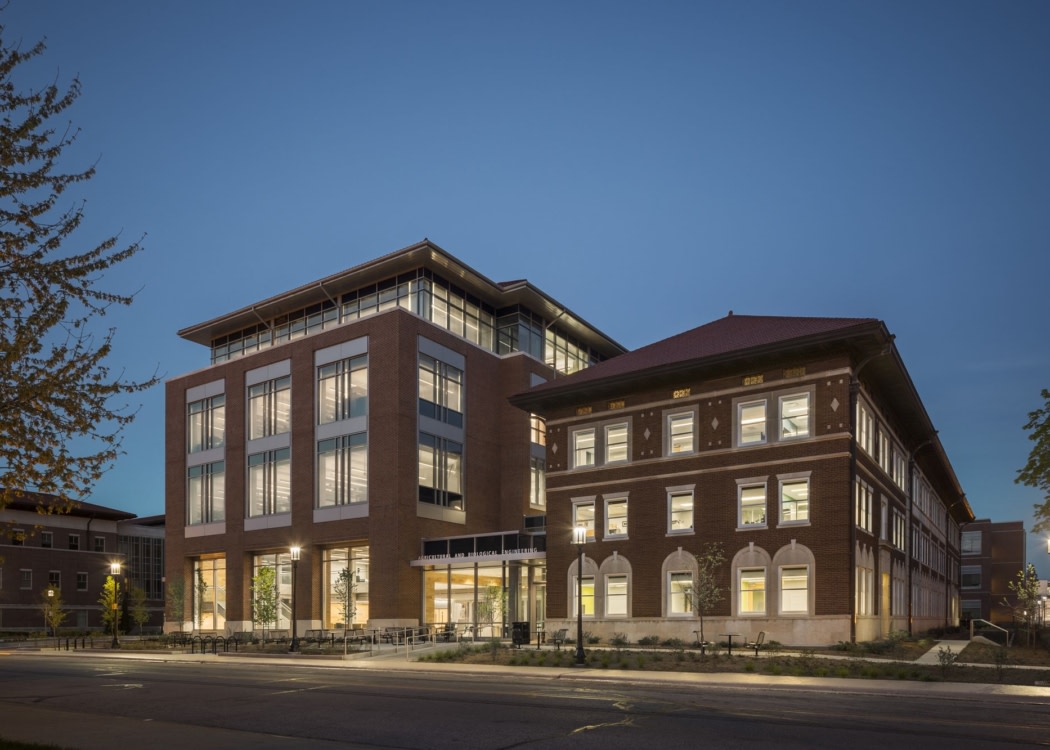
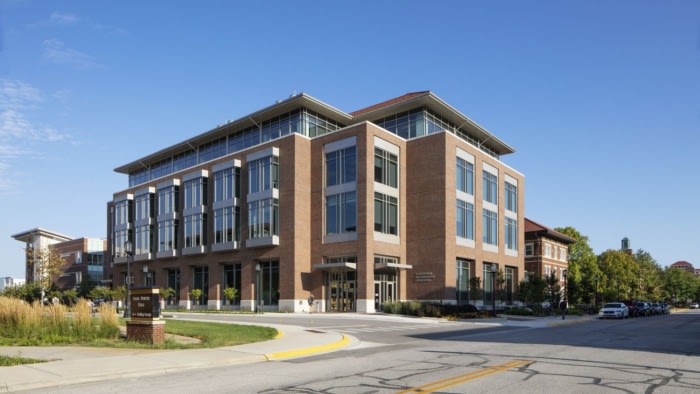
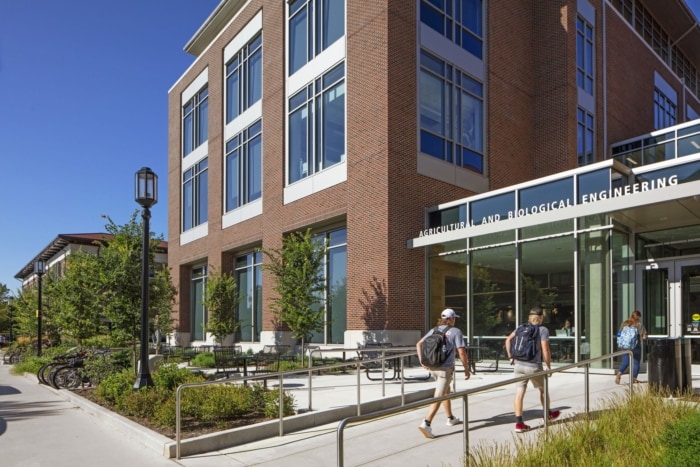
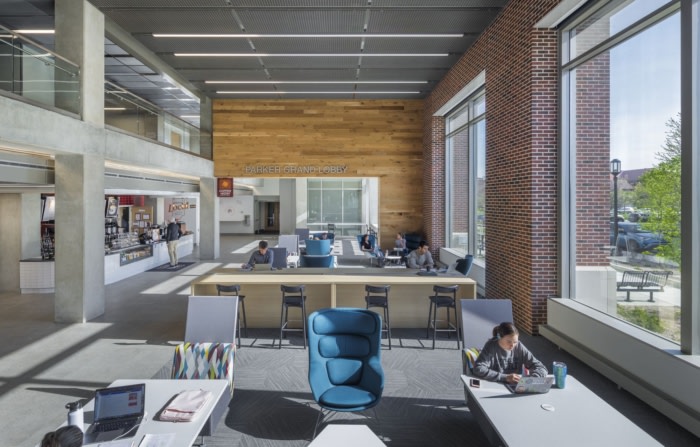
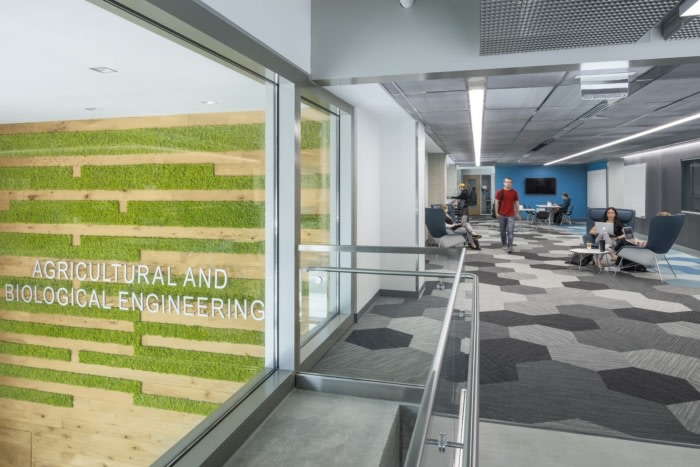
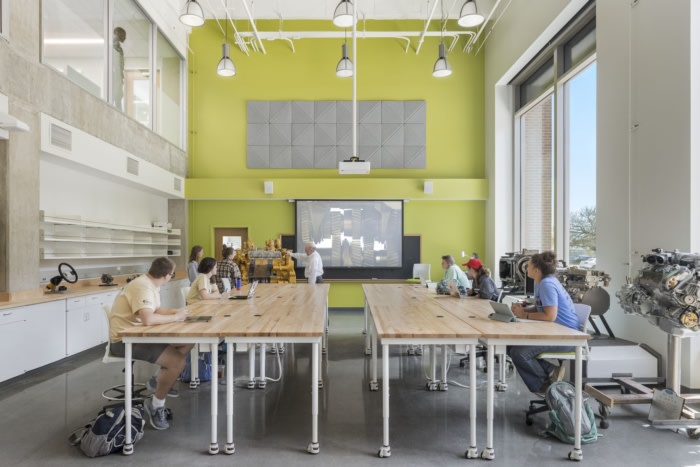

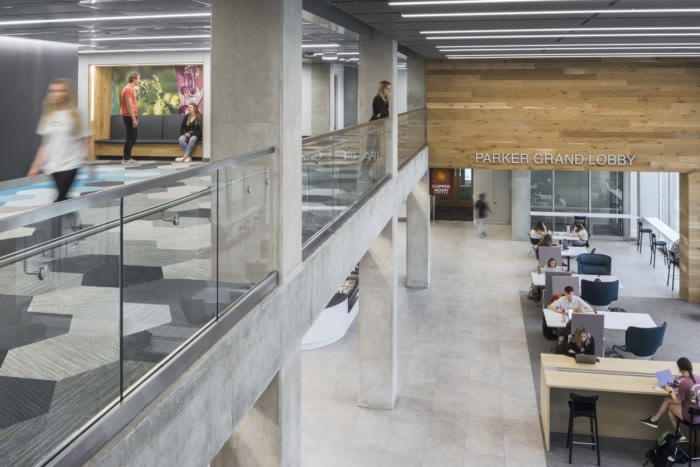
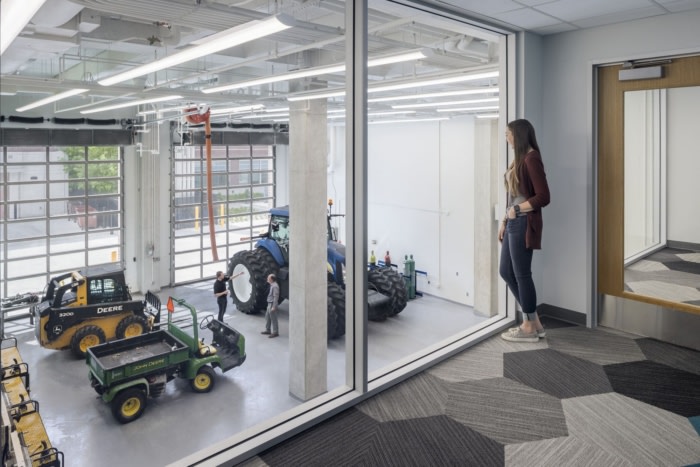
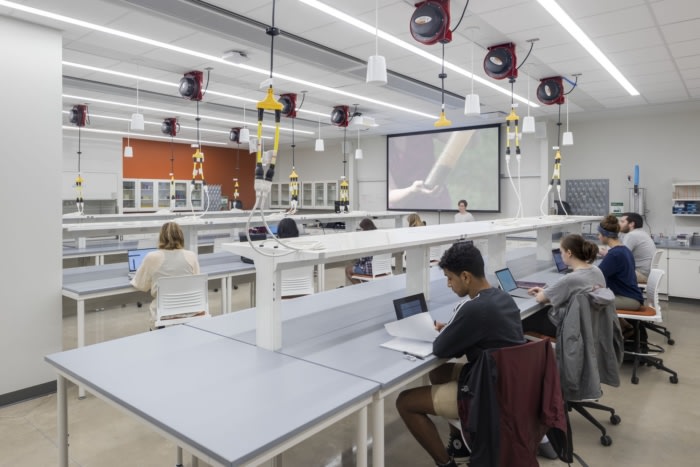
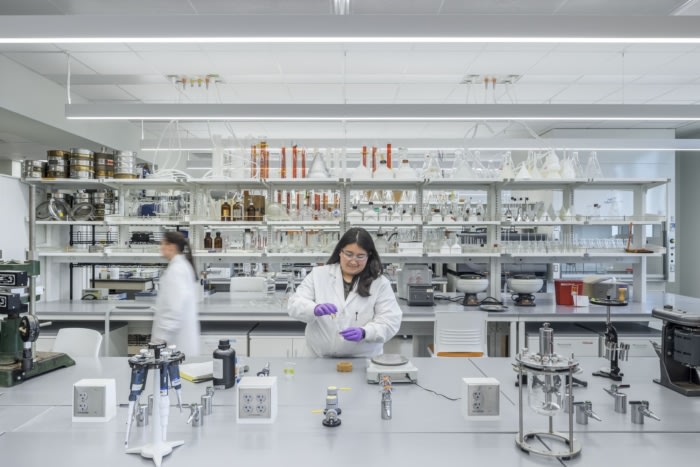
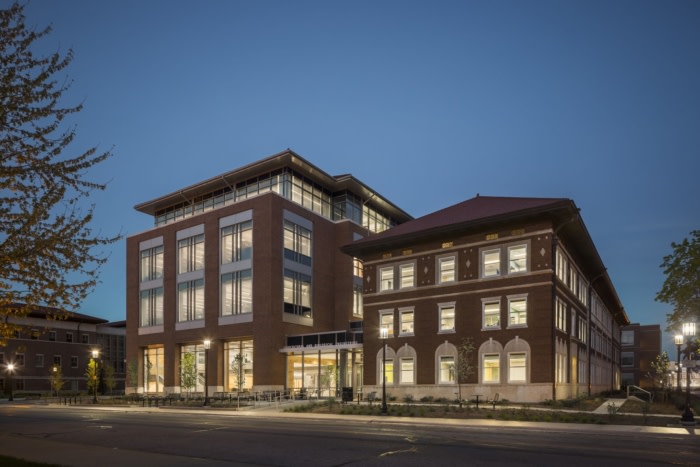




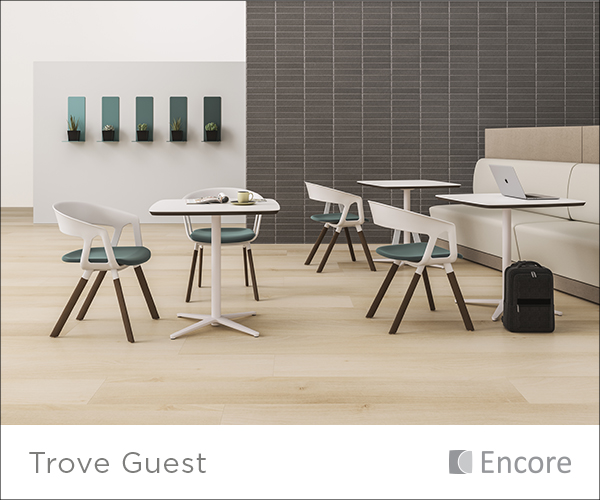






Now editing content for LinkedIn.